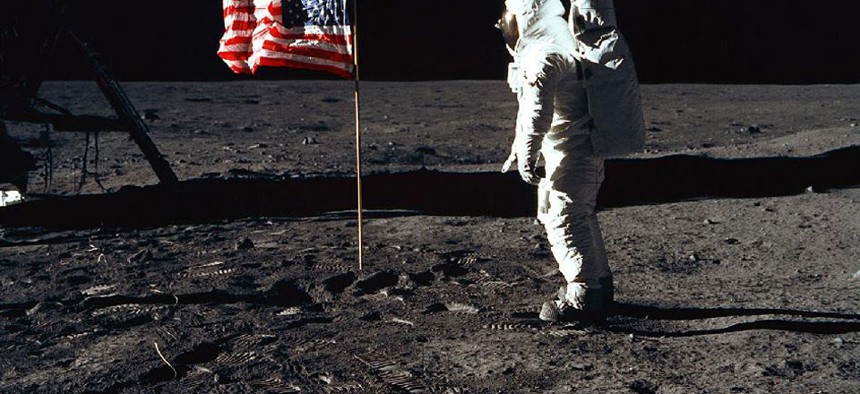Why Do We Go to Space, Anyway?

NASA
The past and the future of travel beyond Earth.
The space program was forged from paranoia and fear. Our first rockets were weapons. Our first moves into the world beyond our own were motivated by competition. But when we finally got ourselves into space -- when we first traveled around our lonely planet, and took our first bounding leaps on the moon -- many of those baser motivations transformed into something more transcendent and profound: Space came to mean something much more than ideology. Space ended up teaching us about life on Earth.
In the video above, part of PBS's "It's Okay to Be Smart" series, the scientist Joe Hanson explains the human value of space travel. "From up there," he says, giving words to the tranquil image of the Blue Marble, "borders and war and violence disappear." And the new kind of vision space affords us, Hanson notes -- its ability to unify the planet via distance from it -- "changed people on Earth. They shared the experience of the moon on their television screens. They decided going to space didn't have to be about fear; it could be about something else."
That "something else"? Inspiration. Achievement. Faith in progress. It's an open question, at the moment, where space travel will lead us, and where we will lead it: Mars? The moon, again? Some space far beyond the reaches of our sun? We don't yet know. What we can be sure of, however, is what Hanson reminds us of: The rockets we send into space will be guided by human dreams.
See this story at TheAtlantic.com.
NEXT STORY: Most Offline Adults Prefer It That Way





